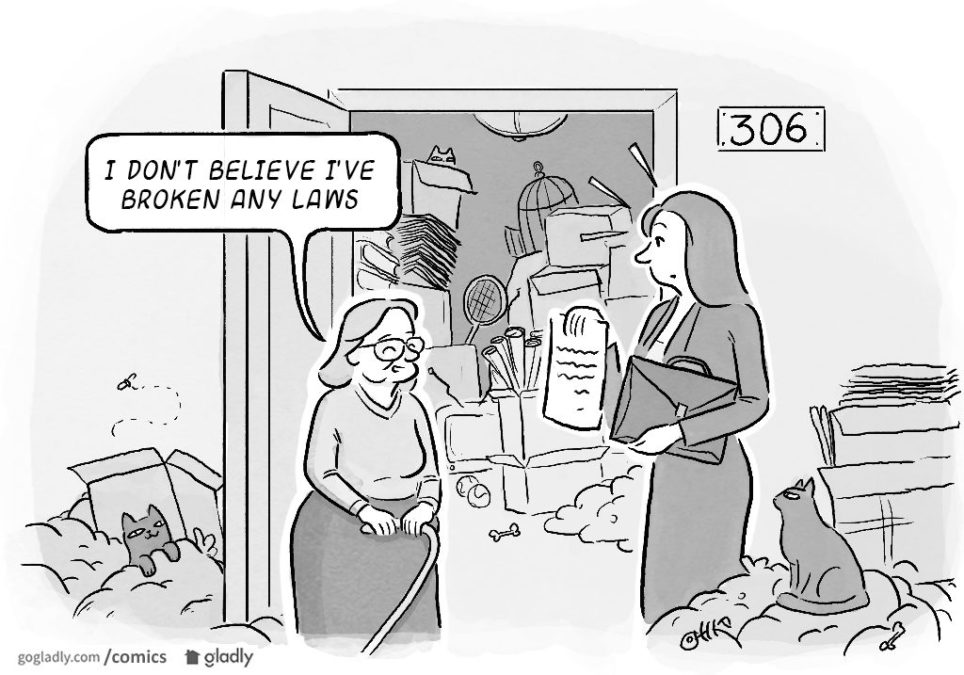Does your community have a problem with an HOA hoarder? Is it affecting other owners’ living space and quality of life (smells, bugs, rodents, property values)? If so, you’re not alone.
HOAs are being confronted more and more with hoarding, but when working with the homeowner to correct the problem fails — what is the association to do? Some Associations look to state and municipal governments for help, but these organizations simply don’t want to get involved and will only go so far if you live in a private condominium or association. In most cases this leaves HOAs to take corrective action themselves in order to stop the hoarding and restore the quality of life.
Do You have the Power?
Before an Association decides to take corrective action, it is important that they have the powers to do so under their conditions, covenants and restrictions (CC&Rs). In most instances, an Association’s CC&Rs will have a regulation for nuisance, annoyance, and quiet enjoyment. Hoarding can violate the CC&Rs for those reasons due to bugs, smells, trash, etc., however, the Association needs to keep in mind, when taking corrective action, that it is not illegal for someone to live in filth.
Taking Action
After an Association has decided that taking corrective action is the only way to resolve the issue, it will need to file a lawsuit including claims of nuisance, annoyance, disrupting quiet enjoyment, and decreasing property values.
The HOA will want to request a hearing to obtain injunctive relief from a court. The goal of the hearing is to require the owner to clean the property by order of the court within a few days or weeks, depending on the severity of the problem. If the owner does not clean the property within the required time period, then the HOA, by order of the court, should request that they be allowed to enter the property and clean it. The owner will be assessed for costs of cleaning and the HOA should be allowed to lien the unit for its costs. These costs could be substantial depending on the scope of the cleanup; whether bio-hazards exist, etc.
Provide Proof
When the HOA has a court hearing on a hoarding matter, it is critical that the Association have detailed records documenting the hoarding including witnesses that can give testimony. Simply stated, you need to be able to convince the judge that the hoarder is threatening the life, safety and health for themselves and the surrounding owners include the common areas. Sufficient proof (pictures and witnesses who have been there — code enforcement, fire department, county health, etc), should allow you to obtain the order of the court you need to start the clean up process. Without sufficient proof it’s likely the judge will not grant the HOA the ability to require the hoarder to remedy their violations and clean their home.
One of the primary functions of the HOA is to provide a clean and safe environment for all the residents. Taking this type of action is never easy but if you take the proper steps this is a problem that can be solved.
- The Pesky Nuances of the HOA Collection Policy - July 26, 2017
- HOA Legal Costs — Who’s Running Up The Bill? - October 19, 2016
- HOA Records — Save or Shred? - September 8, 2016



 Help
Help
I can always use a good chuckle I hope this is free